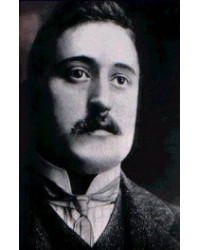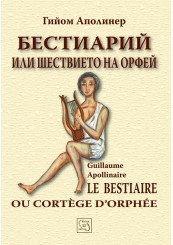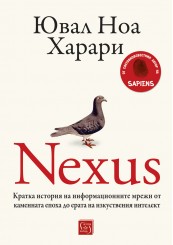Guillaume Apollinaire

Guillaume Apollinaire (1880–1918) was a French poet, playwright, short story writer, novelist, and art critic of Polish descent.
Apollinaire is considered one of the foremost poets of the early 20th century, as well as one of the most impassioned defenders of Cubism and a forefather of Surrealism. He is credited with coining the term "cubism" in 1911 to describe the emerging art movementand the term "surrealism" in 1917 to describe the works of Erik Satie. The term Orphism (1912) is also his. Apollinaire wrote one of the earliest Surrealist literary works, the play The Breasts of Tiresias (1917), which became the basis for the 1947 opera Les mamelles de Tirésias.
Two years after being wounded in World War I, Apollinaire died in the Spanish flu pandemic of 1918; he was 38.
Wilhelm Albert Włodzimierz Apolinary Kostrowicki was born in Rome, Italy, and was raised speaking French, Italian, and Polish. He emigrated to France in his late teens and adopted the name Guillaume Apollinaire. His mother, born Angelika Kostrowicka, was a Polish noblewoman born near Navahrudak, Grodno Governorate (present-day Belarus). Apollinaire's father is unknown but may have been Francesco Costantino Camillo Flugi d'Aspermont (born 1835), a Graubünden aristocrat who disappeared early from Apollinaire's life.
Apollinaire eventually moved from Rome to Paris and became one of the most popular members of the artistic community of Paris (both in Montmartre and Montparnasse). His friends and collaborators in that period included Pablo Picasso, Henri Rousseau, Gertrude Stein, Max Jacob, André Salmon, André Breton, André Derain, Faik Konica, Blaise Cendrars, Pierre Reverdy, Alexandra Exter, Jean Cocteau, Erik Satie, Ossip Zadkine, Marc Chagall, Marcel Duchamp and Jean Metzinger. He became romantically involved with Marie Laurencin, who is often identified as his muse.
In 1911 he joined the Puteaux Group, a branch of the Cubist movement soon to be known as the Section d'Or. The opening address of the 1912 Salon de la Section d'Or—the most important pre-World War I Cubist exhibition—was given by Apollinaire.
Apollinaire was active as a journalist and art critic for Le Matin, Intransigeant, and Paris Journal. He once called for the Louvre to be burnt down.



